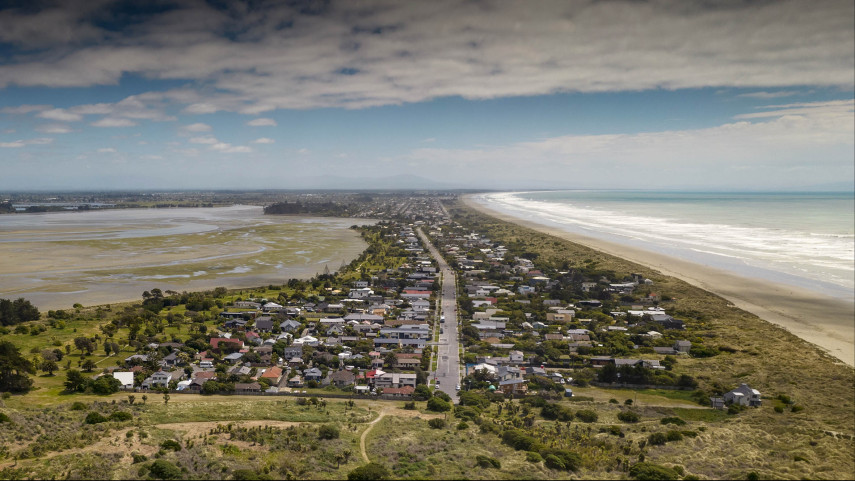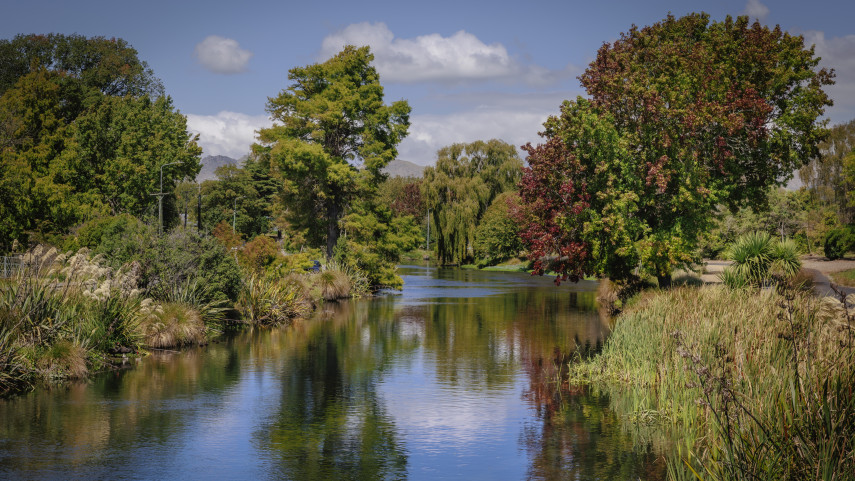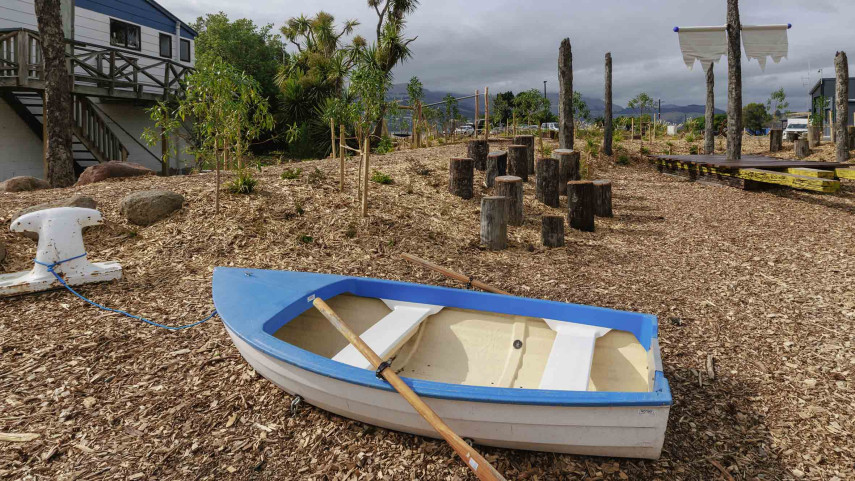Ever wondered what lives in our freshwater reserves? Students go pond-dipping to identify a range of stream invertebrates and explore the wider food chains and life cycles.

Book a Learning Through Action school programme
Risk analysis and management information (RAMS) will be sent out once a programme booking is confirmed. If you require this at any other stage please email LTA@ccc.govt.nz or contact us(external link).

| Year level | 3 to 8 |
|---|---|
| Curriculum level | 1 to 5 |
| Availability | Year-round |
| Times | 9.30am to 11.45am or 12.30pm to 2.30pm |
| Site | The Groynes |
| Cost | Free |
| Number of students | Maximum of 35 |
| Special requirements | None |
- Biodiversity and life cycles.
- Interdependency of plants and animals at the Groynes.
- Sustainability and the consequences of human impact on our waterways.
- Personal responsibility for action
Students will be immersed in the history and ecology of the Groynes as they investigate what lives in and around the streams in this area.
Students will get up close and personal with some local bugs as they carry out an aquatic invertebrate investigation and learn about the effects of water quality and what they can do about it.
Students become water creatures as their learning is reinforced with an action-packed role-play game.
They consider the importance of our biodiversity eating nutritionally and appropriately, as well as investigating the impact of human choices on the sustainability of our ecosystems.
We are learning to:
- Identify some invertebrates living in our waterways.
- Describe one or two aspects of the history of the Groynes.
- Explain how the choices we make as humans affect the quality of life of organisms in the ecosystem.
- Identify actions we can take to sustain life in and around our waterways.
Thinking
Students are encouraged to display intellectual curiosity by suggesting ways of reducing pollutants in our waterways, in order to improve the water quality and support greater biodiversity.
Managing self
Students will manage their learning and think and act independently in an outdoor, near-water environment
Participating and contributing
Students will participate in an aquatic invertebrate investigation by helping to collect specimens, handle them respectfully and identify what has been found.
Relating to others
Students will interact effectively with others throughout group activities; they are afforded the opportunity to be involved in competitive and collaborative tasks.
| Curriculum area | Strand and level | Objective |
|---|---|---|
| Science Pūtaiao |
Nature of Science Levels 1 to 4 |
Investigating in science Communicating in science Participating and contributing |
| Living World Levels 1 to 5 |
Life processes Ecology Evolution |
|
| Planet Earth and Beyond Levels 1 to 4 |
Earth systems Interacting systems |
|
| Social Sciences Tikanga ā-Iwi |
Levels 2 to 4 | Place and environment Continuity and change |
| Health and Physical Education Hauora |
Healthy Communities and Environment Levels 2 and 3 |
Societal attitudes and values Community resources People and the environment |
Related news

Landmark Southshore resource consent approved
The long-awaited project to build erosion and flood protection structures along Te Ihutai/Avon-Heathcote Estuary edge in Southshore and South New Brighton is set to begin, following the approval of resource consent this week.
4 Feb 2026
Trial aims to improve stormwater quality
A one-year trial to help stop zinc runoff getting into waterways is underway as part of Christchurch City Council’s commitment to improve urban stormwater quality.
23 Jan 2026
New play space at Lyttelton’s Naval Point now open
A ‘sinking ship’, monkey bars and dinghy are all features of a new play space at Naval Point.
14 Jan 2026